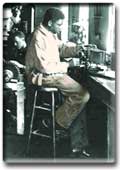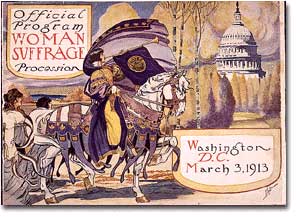
42. Progressivism Sweeps the Nation

Student in the Electrical Division at Tuskegee Institute
Conservatives beware! Whether they liked it or not, the turn of the 20th century was an age of reform. Urban reformers and Populists had already done much to raise attention to the nation's most pressing problems.
America in 1900 looked nothing like America in 1850, yet those in power seemed to be applying the same old strategies to complex new problems. The Populists had tried to effect change by capturing the government. The Progressives would succeed where the Populists had failed.
The Progressives were urban, Northeast, educated, middle-class, Protestant reform-minded men and women. There was no official Progressive Party until 1912, but progressivism had already swept the nation.
It was more of a movement than a political party, and there were adherents to the philosophy in each major party. There were three Progressive Presidents — Theodore Roosevelt, William Howard Taft, and Woodrow Wilson. Roosevelt and Taft were Republicans and Wilson was a Democrat. What united the movement was a belief that the laissez faire, Social Darwinist outlook of the Gilded Age was morally and intellectually wrong. Progressives believed that people and government had the power to correct abuses produced by nature and the free market.

The results were astonishing. Seemingly every aspect of society was touched by progressive reform. Worker and consumer issues were addressed, conservation of natural resources was initiated, and the plight of the urban poor was confronted. National political movements such as temperance and women's suffrage found allies in the progressive movement. The era produced a host of national and state regulations, plus four amendments to the Constitution.
When the United States became involved in the First World War, attention was diverted from domestic issues and progressivism went into decline. While unable to solve the problems of every American, the Progressive Era set the stage for the 20th century trend of an activist government trying to assist its people.




